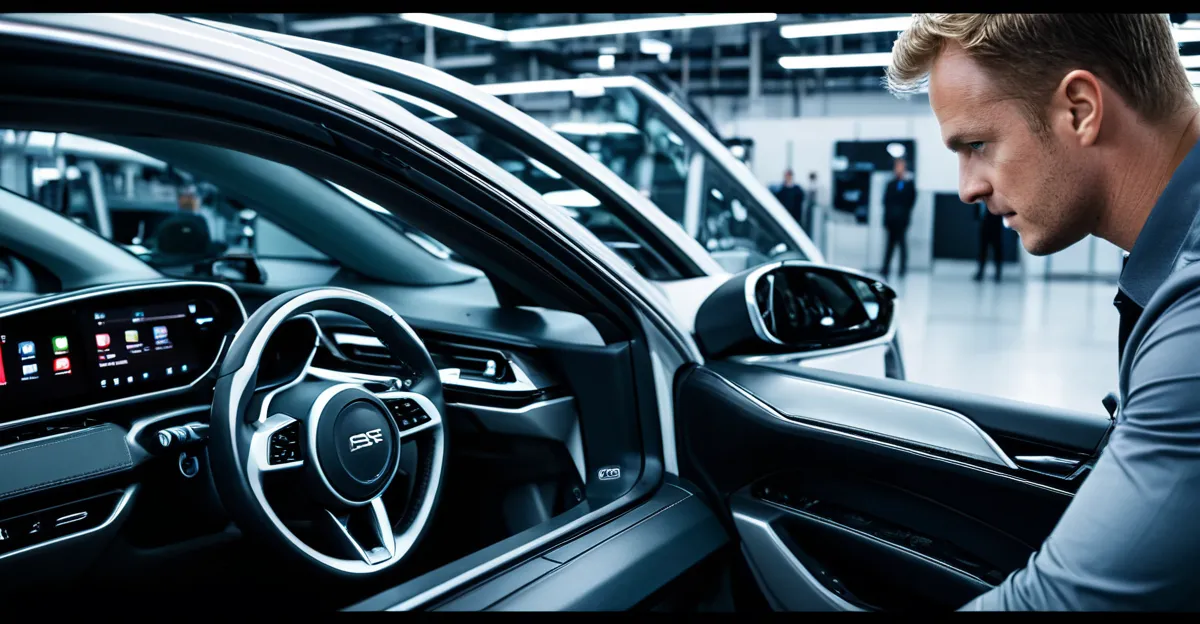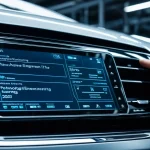The Emergence of Automation in the UK Automotive Industry
Automation in automotive manufacturing is rapidly reshaping the landscape of UK car manufacturing. Leading companies across the sector are embracing robotics and artificial intelligence (AI) to boost efficiency and precision. The rise of automated systems enables better production consistency and reduces error rates, significantly transforming traditional assembly lines.
Adoption rates of automation in the UK have accelerated due to advancements in robotic technology that allow machines to perform complex tasks previously reliant on human dexterity. Additionally, AI-driven analytics optimize processes by predicting maintenance needs and adjusting workflows dynamically, minimizing downtime.
Have you seen this : What Innovations are Transforming the Future of the UK’s Automotive Industry?
Notable UK manufacturers, such as Jaguar Land Rover and Nissan Sunderland, are pioneers in integrating automation within their operations. These firms leverage automation in automotive not only to elevate production standards but also to remain competitive globally. This shift is part of a broader industry transformation, with smart factories and connected systems gradually becoming the norm.
As automation continues to evolve, the UK automotive industry is positioning itself to benefit from stronger productivity and innovative manufacturing models. This technological embrace is a crucial step in maintaining the country’s role as a significant player in the global automotive market.
This might interest you : How Are Technological Advancements Influencing The Future of UK Automotive Engineering?
Economic Impact of Automation on the Automotive Sector
Automation in automotive manufacturing significantly boosts productivity and efficiency, directly benefiting the UK car manufacturing landscape. By integrating advanced robotics and AI systems, automotive firms streamline production processes, reducing errors and cycle times. This leads to faster output rates and better use of resources, which translates into considerable economic impact for manufacturers.
The automation benefits extend beyond production speed. Enhanced precision and consistency improve vehicle quality, making UK-made cars more competitive in export markets. As a result, the UK’s automotive industry experiences growth in both domestic and international demand, reinforcing its global standing.
Investment trends reveal a strong commitment to automation technologies, with UK automotive companies allocating substantial capital toward upgrading factories. However, these investments come with financial challenges, including high initial costs and the need for continuous upgrades to keep pace with technological advancements. Despite this, the long-term gains in efficiency and competitiveness outweigh these hurdles, supporting sustained automotive industry growth.
In summary, the economic impact of automation in automotive manufacturing strengthens the UK’s position globally, drives efficiency, and encourages ongoing investment, ultimately fostering a more resilient and innovative sector.
Workforce Evolution and Skills Demand
Automation in automotive manufacturing is reshaping the workforce changes across UK car manufacturing. As traditional roles shift or become automated, job displacement has become a critical concern. However, new opportunities arise in automation jobs focused on managing, maintaining, and programming robotic systems and AI-driven machinery. This shift demands workers with updated technical skills, prompting reskilling initiatives within the sector.
To address evolving automotive careers, collaboration between education providers, industry leaders, and the government is essential. Training programmes tailored to automation technologies enable employees to transition into high-tech roles, reducing unemployment risks. For example, major UK manufacturers have launched extensive workforce adaptation schemes focusing on digital literacy and robotics operation.
These efforts reflect an understanding that successful integration of automation in automotive production requires not only machines but also a skilled human workforce to support innovation. The continuous evolution of workforce changes ensures the UK’s automotive industry remains competitive by balancing automated efficiency with knowledgeable human oversight and engineering expertise.
Changes in Production Processes and Supply Chains
Automation in automotive manufacturing drives the development of smart factories within the UK car manufacturing sector. These factories integrate robotics, AI, and connected systems, creating seamless production lines that communicate in real time. This shift enhances manufacturing efficiency by reducing delays and minimizing errors throughout the assembly process.
Digital supply chains complement smart factories by enabling better tracking of parts and materials. Automated inventory management systems forecast demand and adjust orders dynamically, reducing waste and preventing bottlenecks. This real-time data exchange improves coordination among suppliers, manufacturers, and distributors, strengthening the entire supply chain.
Quality control is also boosted through automation in automotive production. Advanced sensors and machine vision technologies inspect components continuously, allowing for immediate detection and correction of defects. Consequently, UK car manufacturing benefits from higher product consistency and greater customisation capabilities, meeting diverse market demands effectively.
By redefining production processes and supply chains with automation in automotive, the UK industry gains agility and responsiveness. These improvements foster resilience against disruptions and support scalable growth, essential for competitive advantage in a rapidly evolving global landscape.










